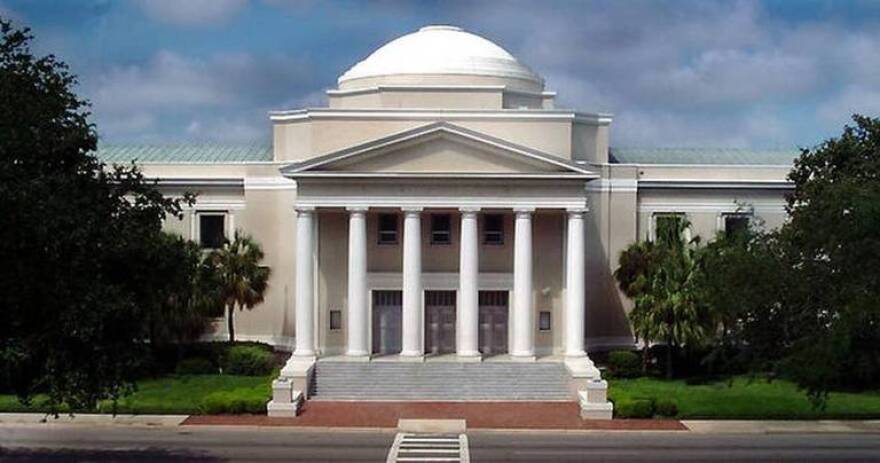TALLAHASSEE --- The Florida Supreme Court on Thursday released its last regular batch of opinions before taking an annual summer break. Justices, who will resume regular opinion releases on Aug. 27, left pending several high-profile cases.
Here are five issues to watch in the coming months:
--- DEATH PENALTY: After issuing a bombshell decision in January about the death penalty, justices are considering potentially far-reaching cases about whether that decision should lead to reinstating death sentences for two convicted murderers. Bessman Okafor and Michael James Jackson were initially sentenced to death for murders in Orange and Duval counties, respectively, but those sentences were set aside because of a 2016 Supreme Court ruling that, in part, required unanimous jury recommendations before defendants could receive the death penalty. Okafor and Jackson have been awaiting resentencing. The Supreme Court in January reversed key parts of the 2016 ruling, including the requirement for unanimous jury recommendations in death cases, and Attorney General Ashley Moody’s office argues the original death sentences of Okafor and James should be reinstated. But lawyers for Okafor and Jackson contend the state does not have legal justification for reinstating the original death sentences and preventing new sentencing hearings.
--- MASS SHOOTINGS: Justices for nearly a year have pondered a question about how much government agencies can be forced to pay in lawsuits stemming from mass shootings, a question that partly involves lawsuits filed after the February 2018 massacre at Marjory Stoneman Douglas High School in Parkland. The issue centers on the state’s sovereign-immunity law, which limits how much government agencies can be forced to pay in lawsuits, and how the liability limits should apply when multiple people are killed or injured in incidents. In the Parkland shooting, the Broward County School Board has argued that the sovereign-immunity law caps at $300,000 its potential liability to the parents and victims in the shooting. The dispute involves whether that $300,000 limit should be an overall total because the mass shooting was a single incident --- or whether each plaintiff filing a claim against the school board should be able to receive $200,000 because the shots were separate occurrences. Justices, who heard arguments last August, also are considering a similar case filed against the Florida Department of Children and Families after a man fatally shot four of his stepchildren in Palm Beach County.
--- MARIJUANA LICENSES: In a case that could have important implications for the medical-marijuana industry, justices are looking at whether the state has properly carried out a 2016 constitutional amendment that broadly legalized marijuana for patients. Lower courts have sided in the case with Florigrown, a Tampa-based company that argues a 2017 state law conflicts with the constitutional amendment. Florigrown has unsuccessfully sought approval from the Florida Department of Health to become a licensed medical-marijuana operator. The case primarily centers on a requirement that the Legislature put in the 2017 law that says medical-marijuana firms must be able to handle all aspects of the business, including growing, processing and distributing products --- a concept known as a “vertical integration” system. Florigrown contends that was not the intent of the constitutional amendment and that a vertical integration system limits the number of companies that can take part in the industry.
--- MEDICAID EXPANSION: After years of debate about whether Florida should expand Medicaid eligibility to cover more low-income adults, the Supreme Court will decide whether a constitutional amendment on the issue could go on the 2022 ballot. The political committee Florida Decides Healthcare wants voters to approve a Medicaid expansion that is allowed under the federal Affordable Care Act, better known as Obamacare, with Washington picking up most of the cost for newly covered people. The committee initially sought to put the issue on the 2020 ballot but did not collect enough signatures and changed course to 2022. But lawyers for the state House and Senate contend the Supreme Court should block the measure, saying it would be misleading to voters and improperly infringe on the Legislature’s powers. Also, the Senate has argued that a petition-signature law passed during this year’s legislative session should scuttle the Medicaid proposal.
--- RECREATIONAL MARIJUANA: With Attorney General Ashley Moody, lawmakers and groups such as the Florida Chamber of Commerce trying to block the measure, justices will decide whether a proposed constitutional amendment about recreational marijuana should be able to go on the 2022 ballot. The political committee Make It Legal Florida is backing the proposal, which would allow people to use recreational marijuana. The committee initially sought to put the measure on the 2020 ballot but did not submit enough petition signatures and shifted to 2022. Opponents contend the measure would be misleading to voters, at least in part because possession and purchase of marijuana would remain illegal under federal laws. But the committee argues its proposal piggybacks on a system resulting from a 2016 constitutional amendment that legalized medical marijuana.


